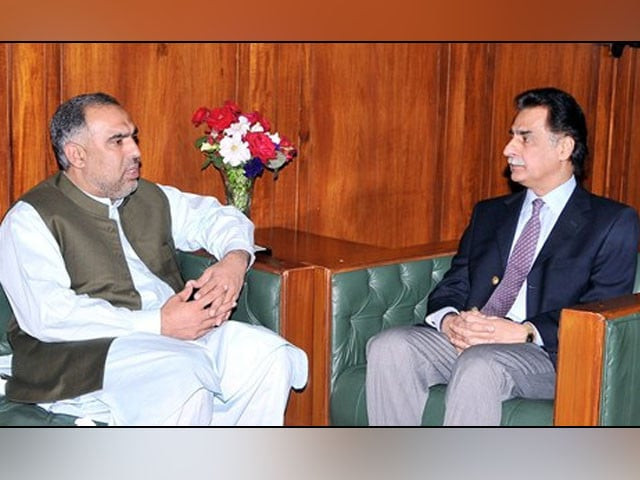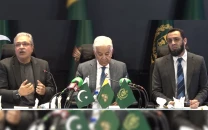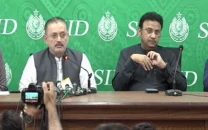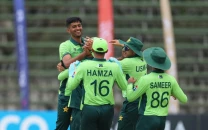PTI's Asad Qaiser contacts Speaker Ayaz Sadiq to initiate talks with govt
During conversation, two leaders deliberated on composition of government’s negotiating committee

Contact between the Pakistan Tehreek-e-Insaf (PTI) and the government has been restored, with PTI leader Asad Qaiser reaching out to National Assembly Speaker Ayaz Sadiq to discuss the formal initiation of talks, Express News reported.
Sources revealed that Qaiser, a senior PTI leader, made contact with Sadiq to discuss the current political situation and the possibility of resuming dialogue between the two sides.
During the conversation, the two leaders deliberated on the official start of negotiations and the composition of the government’s negotiating committee.
Qaiser also inquired about the details regarding the government's committee for talks, signalling PTI's willingness to engage in discussions. However, sources indicated that no specific time has yet been set for a formal meeting to begin the negotiations.
PTI is expected to present significant demands when the negotiations formally commence, as per informed sources. The opposition party has reportedly agreed to use Parliament as the platform for the talks, following a suggestion from the NA Speaker.
Speaking about the development, a member of PTI's negotiating committee, Hamid Raza, stated, "If the government had come forward with a viable proposal earlier, talks could have taken place. We are still ready to engage in discussions." He reiterated PTI’s willingness to negotiate with the government.
Meanwhile, Senator Shibli Faraz, another senior PTI figure, said that the opposition's negotiating committee is prepared to engage with all parties. "We have formed a serious and senior committee for talks, and we are ready to engage with everyone," he said.
While speaking in the Senate, the Leader of the Opposition in the Senate has blamed the government for the violence that took place in the aftermath of a 'final' protest call by PTI for November 24, claiming that 13 PTI members were killed in the clashes.
Despite the tragic events, Faraz stated that PTI's committee remains open to negotiations with all parties involved.
Faraz labelled the government reaction as a 'black day' in Pakistan’s political history, adding that it would be remembered as a day that began with the events of February 8.
"Before the elections, we were stripped of our election symbol, but despite that, the public voted for us. Our mandate was stolen," he said. He also accused the government of using live ammunition to suppress the protest. "The bullets were not intended to scare, but to kill," Faraz added.
The Senate opposition leader detailed the toll of the protests, claiming 13 fatalities, over 200 missing activists, and more than 5,000 PTI supporters in jail. He also pointed out the absence of medical records for those who were hospitalised after the violence.
“We have not been given any records for the dead, and the Interior Minister had said that they would shoot for 5 minutes, and no one would be seen," he alleged.
Faraz also spoke about the political crisis in Pakistan, calling it the “most dangerous turning point” in the country’s history.
He accused the current ruling party of attacking the Supreme Court, highlighting how video clips were shown at Pakistan Muslim League-Nawaz (PML-N) rallies with explicit threats. "But we did not do that," Faraz emphasised.
He demanded an independent inquiry into the incidents of May 9 and November 24, calling for a commission led by three senior judges of the Supreme Court.
“We want an investigation into what happened on November 24 and May 9,” he said, stressing that a fair investigation would require senior judicial oversight.
Faraz also criticised the response from other political parties, expressing disappointment at their stance on the matter. "What is happening to us today, will happen to you tomorrow," he warned, referring to the government’s treatment of opposition parties.
The opposition leader raised concerns about the state of the country’s economy, citing a recent report by The Economist that described Pakistan’s political system as shifting from authoritarianism to a hybrid model.
He expressed frustration with the emigration of educated Pakistanis, adding that the people of Azad Kashmir had set a strong example by successfully asserting their demands.


















COMMENTS
Comments are moderated and generally will be posted if they are on-topic and not abusive.
For more information, please see our Comments FAQ